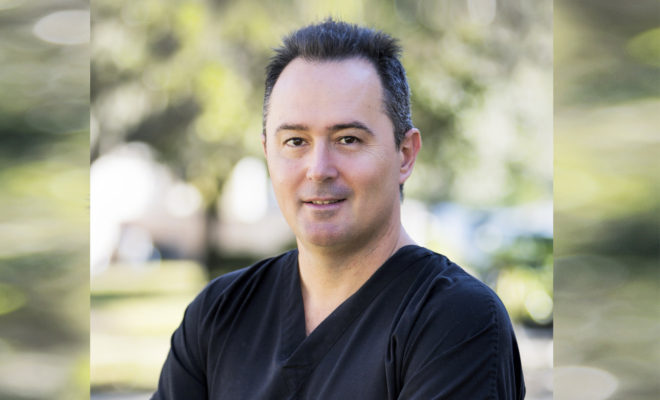
Health & Wellness
InHealth: VENOUS DISEASE
By Federico Richter, MD, RPhS, DABVLM Board Certified | May 2023
Venous reflux is the main cause of chronic venous insufficiency. When the venous network is functioning correctly, every movement of the leg causes blood to be pumped inward and upward passing a series of valves. Normally the valves in the veins make sure blood flows toward the heart, but when these valves don’t work well, blood flows backward and starts to collect (pool) in the legs.
Patients usually think that only varicose veins or bulgy veins are a sign of a problem. However, in most of the cases patients with no visible bulgy veins have life limiting symptoms such as night cramping on feet and legs, dull aching, swelling, heavy feeling in the legs, charley horse cramps, skin discoloration, neuropathy (tingling and numbness), etc. All those could be red flags associated with venous insufficiency.
There are a variety of non-invasive treatments that will improve a person’s quality of life by treating the symptoms and preventing these symptoms from becoming a major health condition. At my practice, we assess our new patients by performing a venous duplex ultrasound to determine the blood flow of the veins and a full medical evaluation to diagnose the problem. We then design the plan of care that will better suit each patient’s needs and make recommendations based on individual diagnosis and health.
Part of the process would consist of procedures of the truncal veins (Thermal with Laser and Radio Frequency, Chemical with Varithena or Ultrasound Guided Foam Sclerotherapy), or injections (Visual Sclerotherapy) for the incompetent veins. After any of these procedures, the wearing of compression stockings is recommended. There is no downtime for the patient.
It is very important to educate the health industry and the public about this common condition that sometimes is mistakenly diagnosed as a neuropathy or a cosmetic problem. Venous insufficiency is a chronic condition that needs to be diagnosed by a vein specialist who has the knowledge to address the problems. In most of the cases, treatment is considered medically necessary and health insurance will cover it.
Chronic venous insufficiency will not disappear on its own, and the treatment can become more challenging as the disease progresses. Left untreated, the condition can lead to disabling pain and open sores called skin venous ulcers. Some people may develop blood clots in the legs, a serious condition called deep vein thrombosis (DVT). It is very important to choose an experienced vein specialist with the knowledge, skills, and technology to diagnose and treat the venous disease successfully.
Florida Vein Center
6050-A 53rd Ave E
Bradenton, FL 34203
941.907.3400
4051 Upper Creek Dr #108
Sun City Center, FL 33573
813.634.9260
www.floridaveincenter.com



You must be logged in to post a comment Login